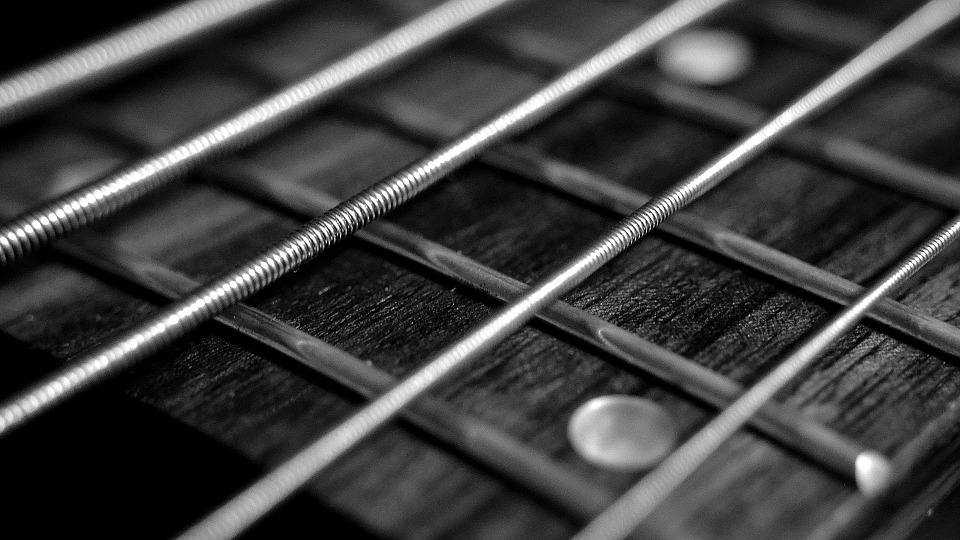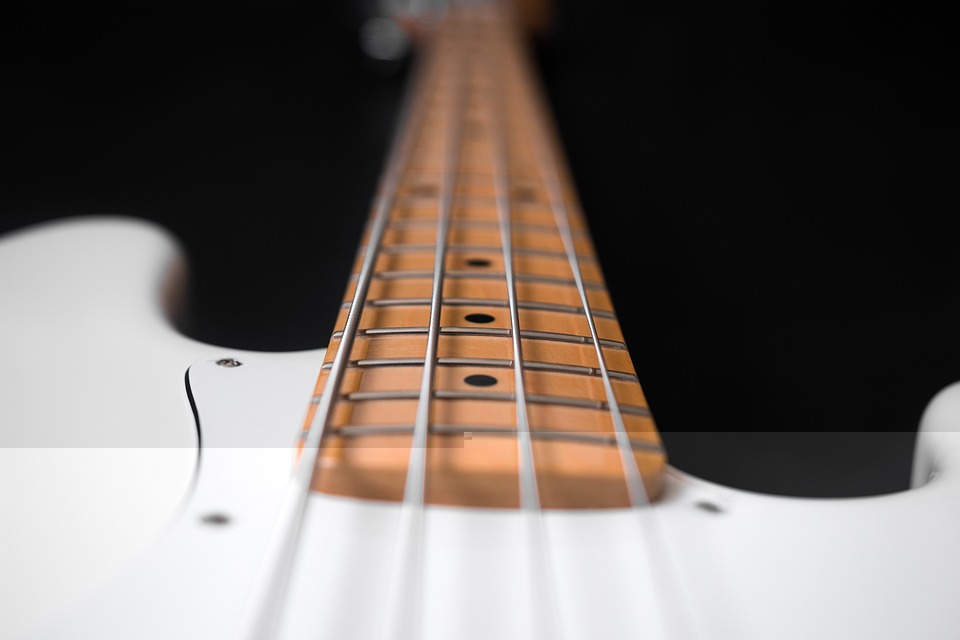Tips To Play Electric Bass Guitar Better

When it comes to the bass guitar, you know you are in for a real treat if you practice the right technique and skills. The bass is not just a guitar with a few strings less than six. The tone, feel, and capabilities that a bass guitar can produce requires an approach the combines technique and appreciation of the unique sound that only a bass guitar can emit.
When playing bass guitar, you need to make sure that you focus on playing for the song, and not showing off in an unbridled display of showy moves which may compete. When you work with the foundation notes within the chords and play along with the kick from the drummer, you’ll have a better experience.
If you are looking for some handy bass guitar tips to improve your style and form of playing, continue reading on to learn how to polish your skills.
Learning How To Manipulate Your Bass Guitar’s Sound Qualities

If you want to apply some bass guitar tips, you are going to need to fully understand the ins and outs of how your bass guitar is structured. A bass guitar is unique unto itself, and should be valued for the specific skills you can learn to make your guitar really sing.
Consider adopting ‘walking bass’ which has origins in jazz and blues. The way this concept works is that you keep the bass line constantly moving, instead of staying on one note. Using a quarter-note rhythm, you can walk from one chord’s root note up and down, and occasionally throw in a little pizzazz.
Chord tones are good to stick to because they don’t contribute to dissonance and give you a harmonically Consonant sound.
Some things to keep in mind when utilizing the fullest capabilities of your bass to create harmonic sounds.
- Make use of your octaves and fifths.
- The fifth note is going to be the most harmonically friendly note available beyond the octave root.
- If you play your octaves and fifths right, you can enjoy creating exciting and melodic bass lines.
- You can stay in line with the drummer, and avoid clashing with chords that would create disharmony.
If you want to get a punchy feel like Rocco Prestia, you will want to pluck the strings near the bridge using only the slightest part of the tips of your fingers. If you pluck too hard and close to the base of the fretboard, you
might not like the effect.
It should go without saying that you always want to check upon your bass guitar, and ensure that the strings are in excellent condition, the frets are clean, and that your instrument is tuned correctly. If you neglect cleaning and tuning your instrument, you are going to have a poor sound quality no matter how well you usually play.
Value Your Time And Stay The Course

You also cannot avoid practicing various skills to keep your fingers nimble and feel free to experiment with different chords and picking. Even if you choose to emulate your guitar heroes, and utilize bass guitar tips gleaned from listening and watching recordings of the greatest musicians of bass guitar, you have to carve out your path.
Don’t forget when you are playing bass guitar you want to maintain a steady tempo. If your drummer is too prone to doing their own thing, it’s up to the bass guitar player to hold down the fort. You should feel comfortable being able to count using 4/4 time, and 8/8 for ballads when you will want to speed up things a bit.
Don’t forget to set yourself apart when playing. Although as a bass guitar player, you may fill a role as an accompaniment to the overall song, you can still find ways to embellish a line to keep things moving along.
When there is room in a section where the verse is leading into the chorus, feel free to break away from the guitarist and show off a bit. Improvisation is a huge part of the music, and the right timing is essential.
The key is to remember the importance of adding value to a song while setting yourself apart as the bassist, but not to outshine everyone else in the band or the song itself. When in doubt, playing with the drummer in mind can help keep you on track. Also, don’t forget to consider the style of music that you are playing, as fills aren’t always necessary.
Feel Free To Experiment With Chords & Sounds

Sometimes, you might be surprised at how much you can transform the sound and feel of a song, merely by playing the third or fifth of an underlying chord, instead of going for the root note. Altering how you approach chord progression can add some tension or depth.
Many pop songs and classical composers have used bass line substitutions to build a climax of harmonies using chord inversions. Being open to changing up how you approach a song, and recognizing how much influence the bass guitar can have on the character of a chord’s sound is valuable. Put it to good use, and let your ears and gut be your guide.
You have the potential to create a more melodic bass line if you use a chord inversion within the second and third bars.
Do not fear the capability to emit some grumbly, low rumbling sounds that draw upon the spirit of freedom and expressiveness that is the backbone of rock and roll music. You don’t get to get away with being sloppy about things, but you craftily utilize fret noise, slide out of a note, or play around a bit with your bass guitar as long as you contribute to heightening the music.
If you are bringing the music down with excessive useless noise, your ear knows, and so does everyone else.
Harmony complements, and timing count with music.
Feel free to quickly slide or pull off to another fret and back when picking a note. Allow yourself to make sounds that add a bit of kick and funk to the rhythm. This is one thing that the bass guitar was made to do, that a lead guitar can’t pull off the same.
Also, don’t forget that you can choose to pick with a pick, use the tips of your fingers, pick with your thumb, use palm muting, slap, and use finger slides to create some much-needed variation while playing. The point is
to feel the music, follow the flow of the sounds, and complement the drummer, lead guitar, vocals, and make some magic happen.
One more thing, using rests and staccato phrasing can get your audience going, and you don’t have to make things over complicated to get attention. Sticking to eighth notes and committing to executing some solid playing that works with the drummer has helped push some songs well. Be expressive, but remember to keep the harmony and groove going.
Keep Track Of Your Progress And Growth

Music is meant to be felt and delivered masterfully with passion, purpose, and power. When you play, really open up your instrument’s capabilities, and permit yourself to be expressive enough to go along with the ride.
There’s no need to hold back if you know you can add a fill. Feel free to slide into a note, or experiment with how you pick your notes and the speed.
Remember to chart your progress so you can be better aware of your weak points, strong points, and visibly see your growth. Your fingers and your ears will sharpen over time, and you will intuitively understand where you need to add more embellishments, or pull back and keep things simple when rocking out on your bass guitar.
Equip Yourself With The Right Gear

No matter how skilled a guitar player you may be, you do get what you pay for when you choose an instrument. Even if you are on a budget, make sure you enjoy the sound quality and ease of playing with whatever bass guitar you select.
Respect yourself, the music, and care for your instrument by keeping up with any repairs, tuning, and cleaning as needed. Check on those strings, and consider changing out the type of strings you typically used if you are
unhappy with the result.
If you love the instrument you are practicing on, you will love that instrument when you are playing alone or with others. Your relationship between you and your bass guitar is an extension of yourself, a fantastic tool that can display your heartfelt emotions, rock your soul, and deliver a powerful performance like none other.
Yes, the guitar may get all the glory, so it seems, but without the addition of the bass guitar, you wouldn’t be able to get those deep guttural raunchy sounds that still maintain the tempo when the drummer’s off their
game.
So, listen to some of your master guitar players who deliver the powerful performances of your favorite songs, listen and practice often, and be patient with your progress. Apply whatever bass guitar tips speak to your
sensibilities and enrichen your skills, and let the music flow.

